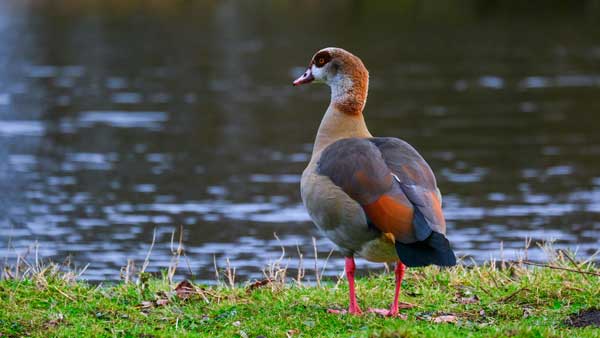Gireogi Appas: South Korean fathers’ sacrifices for overseas education

[A wild goose stands alone in front of a lake. Photo Credit: Pexels]
In February 2024, Yoon Sang, a South Korean music producer and father of RIIZE member Anton, shared his 14-year journey as a “gireogi appa.”
Yoon discussed the emotional and financial challenges of supporting his family abroad while living alone in Korea, and highlighted the sacrifices many fathers make to ensure better educational opportunities for their children.
This phenomenon has gained increasing attention as the number of international students from South Korea continues to rise.
The term “gireogi appa” comes from the Korean word for “wild goose” and “appa” meaning father.
It refers to men who work and live alone in Korea while financially supporting their families abroad, typically in English-speaking countries like the United States, Canada, New Zealand, Australia, or the United Kingdom.
The cultural emphasis on education in South Korea, particularly on English language skills, drives many parents to make this difficult decision.
Therefore, it is no surprise that the number of international students from South Korea has continued to rise over the decades, reaching approximately 181,842 as of 2023, a 13,369.77% increase from the 1,350 Korean international students in 1998.
The rise of “wild goose families” became so prevalent that the National Institute of Korean Language adopted “gireogi appa” as an official term in 2002.
The decision often stems from the fathers’ established careers in Korea and potential language barriers that could affect their earning abroad.
The financial burden on these fathers is substantial, covering basic necessities like food, clothing, housing, transportation, and sometimes tuition.
Currency exchange rates add to the financial burden.
Historically, the US dollar has been stronger than the Korean won, with 1,000 KRW currently equivalent to only about $0.725 USD.
This means that 10,000,000 KRW sent to the United States amounts to approximately $7,225 USD, significantly reducing the value of the money earned in Korea.
The emotional and physical toll on “wild goose fathers” is profound.
A study by the Department of Nursing Science at Ewha Womans University found that loneliness is a common issue among these fathers.
This loneliness can lead to depression and unhealthy coping mechanisms such as excessive drinking and smoking.
The bond between fathers and their families often weakens, compounded by time differences that make communication challenging.
Some fathers, known as “eagle fathers,” have the financial means to visit their families regularly, akin to the eagle’s ability to fly.
Others, termed “penguin fathers,” face monetary constraints that prevent frequent visits, which draw a parallel to the penguin’s inability to fly.
“Personally, loneliness and not being able to see my wife and children every day are the most difficult aspects of being a wild goose father,” says Soon Jae Lee, who has supported his family in California from Seoul for two years.
Despite the hardships, many “wild goose fathers” experience success, with fathers making tremendous sacrifices for their children’s future.
“It pains me every day, but I make sure to have video calls with my family almost every day to stay focused and remind myself of why I am doing this, and to work hard so that I can afford to see my family as often as I can,” Lee shares.
The sacrifices of “wild goose fathers” highlight the lengths parents will go to ensure better opportunities for their children, even at the cost of their own comfort and well-being.
As the trend of international education grows, the stories of these dedicated fathers continue to resonate deeply within South Korean society.

- Yeonwoo (Anthony) Kim / Grade 11
- Crean Lutheran High School

![THE HERALD STUDENT REPORTERS [US]](/assets/images/logo_student_us.png)
![THE HERALD STUDENT REPORTERS [Canada]](/assets/images/logo_student_ca.png)
